Dogs are not just pets; they’re part of the family! And like any family member, we want to ensure they’re healthy and cared for. Just as we do with our own bodies, it’s important to pay attention to what our dogs ingest. Many plants and foods are unsafe for dogs and can cause serious health issues.
So, when it comes to herbs, it’s essential to know which ones are safe for your canine companion. This is especially important if you grow fresh herbs in your garden or use them in your own cooking.
While some herbs are safe for humans, they may not be safe for dogs.
But don’t worry, pet parents, plenty of herbs are safe for dogs and can even provide health benefits!
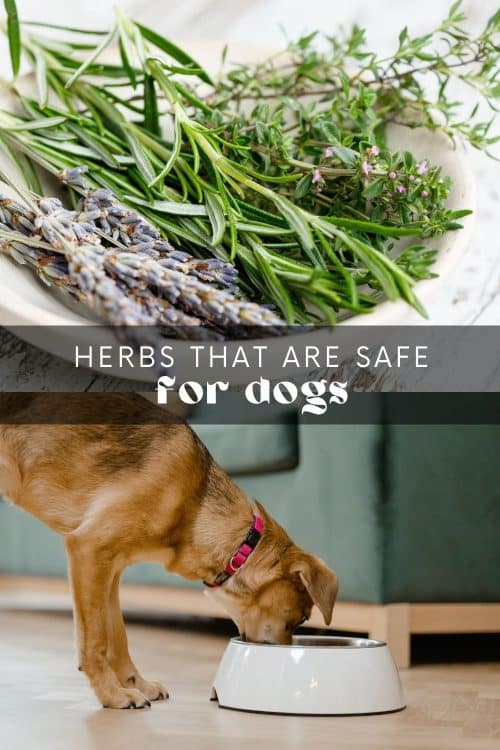
How to Incorporate Herbs into Your Dog’s Diet
There are several ways to incorporate herbs into your dog’s diet. Here are some methods you can try:
- Add fresh herbs to their food: Just like we add fresh herbs to our own meals, you can also sprinkle them onto dog food. Make sure to chop them finely so they’re easy for your dog to digest.
- The amount you use will depend entirely on your dog’s size. A pinch for small dogs and up to a teaspoon for large dogs should suffice. Always consult your veterinarian if you want a specific recommendation for your dog’s size and breed.
- Make herbal teas: Some herbs can be brewed into an herbal tea! Yes, your dog can also enjoy a nice, warm cup of tea. Just avoid adding any sweeteners or milk, as these can cause stomach upset. You can even try freezing the tea into ice cubes for a refreshing treat on hot days.
- Create herbal-infused treats: You can also make homemade dog treats using safe herbs. Not only will this give them a tasty snack, but it’ll also provide added health benefits.
- Use dried herbs in DIY grooming products: Some herbs have natural properties that can benefit your dog’s skin and coat when used in grooming products. Dog-safe shampoos, sprays, and balms can be made with certain dried herbs.
Please note you should always start with small amounts and gradually increase if your dog tolerates them well. Avoid essential oils (unless advised otherwise) and stick to using fresh or dried herbs.
Always consult with your veterinarian for feeding directions! This post is not intended as veterinarian advice or nutrition advice.
Herbs That Are Safe For Dogs
Basil
Basil is a popular herb in cooking, especially for Italian dishes. But did you know it’s also safe for your furry friends? Basil contains antioxidants and anti-inflammatory properties that can help promote overall dog health. It can also aid in digestion and even bad breath!
Finely chop some fresh basil and sprinkle it over your furry friend’s food for added flavor and health benefits.
Parsley
You know how parsley can get rid of bad breath in humans? It can do the same for dogs! Parsley contains high levels of chlorophyll, which acts as a natural deodorizer and can freshen your dog’s breath.
Parsley is also high in dietary fiber, making it good for digestion and constipation. Add chopped fresh parsley to your dog’s dinner, or brew it into a tea!
Rosemary
Rosemary is another herb commonly used in cooking, but it’s also safe for dogs. This herb has anti-inflammatory properties and can improve digestion, boost the immune system, and even act as a natural insect repellent!
Bake rosemary into homemade dog treats or use it in a grooming spray to keep your pup’s coat shiny and healthy.
Thyme
This small but mighty herb is safe for dogs and has various health benefits. It’s good for digestive issues, so add some thyme to your dog’s meal if they have an upset stomach. Thyme also contains high levels of vitamin C and can help boost your dog’s immune system! Your furry companions will love the added flavor, too.

Sage
Sage is a woody herb commonly used in cooking, and it’s also a safe herb for dogs.
It has anti-inflammatory properties and can help with brain function, making it perfect for older dogs or those with sensitive stomachs! Sage is also a natural antiseptic and can be used to clean minor cuts and help elevate symptoms of urinary tract infections.
Chop some fresh sage and sprinkle it on your dog’s food, or mix it into a homemade broth – yum!
Mint
Mint isn’t just refreshing in human food; it can have similar benefits for dogs! Certain mint species like peppermint and spearmint can soothe an upset stomach and freshen your dog’s breath. It also contains antioxidants, protecting your dog’s cells from free radical damage and promoting overall health.
Cilantro
Whether you love or hate it, cilantro is another herb safe for dogs to eat. It has antibacterial properties and can help with digestion, making it a perfect addition to your dog’s meals if they have gastrointestinal issues.
With vitamins A and C, as well as potassium and calcium, cilantro can also support your pet’s immune system and promote healthy bones.
Plus, it adds a burst of flavor to any doggy dish!
Aloe Vera
Aloe vera contains antimicrobial properties, making it a great herb for dogs with skin conditions like hot spots or allergies. It’s best to use aloe vera topically unless advised by your veterinarian. Aloe vera can be applied to the affected area for soothing relief.
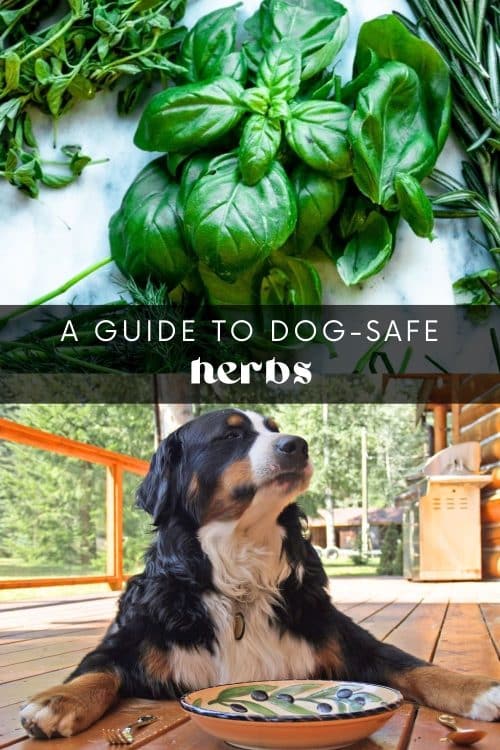
Milk Thistle
For humans, milk thistle is known for its liver-protecting properties. But it can also benefit your dog’s health!
Milk thistle promotes healthy liver function and can even help detoxify the body. This herb is often used for dogs with chronic liver disease, as it may help slow down the condition’s progression. Large amounts of this herb can have a laxative effect, so it’s important to consult with your veterinarian before adding it to your dog’s diet.
Dandelion
While they aren’t technically classed as a herb, dandelions are more than just a pesky weed!
Dandelion leaves are high in vitamins A, C, and K and can aid digestion and help detoxify the liver. You can feed fresh dandelion leaves to your dog or look for dog-specific dandelion herbal supplements for added health benefits.
Herbs to Avoid Giving Your Dog
While many herbs can benefit your dog’s health, some should be avoided. These can include:
- Garlic
- Chives
- Bay leaf
- Paprika
- Marjoram
- Nutmeg
Always research and consult with your veterinarian if you have any concerns. Every dog is different and may have unique side effects or allergic reactions from certain herbs.
With this in mind, herbs can be a wonderful addition to your dog’s meals and provide numerous health benefits. So go ahead and spice up your dog’s diet with some safe and beneficial herbs!
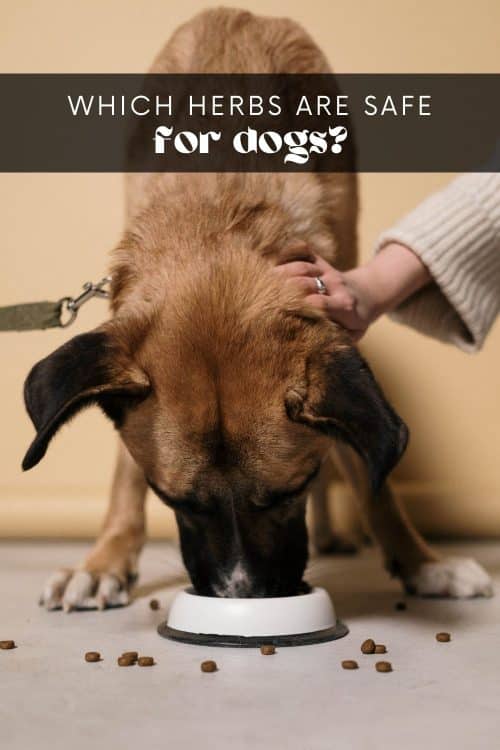
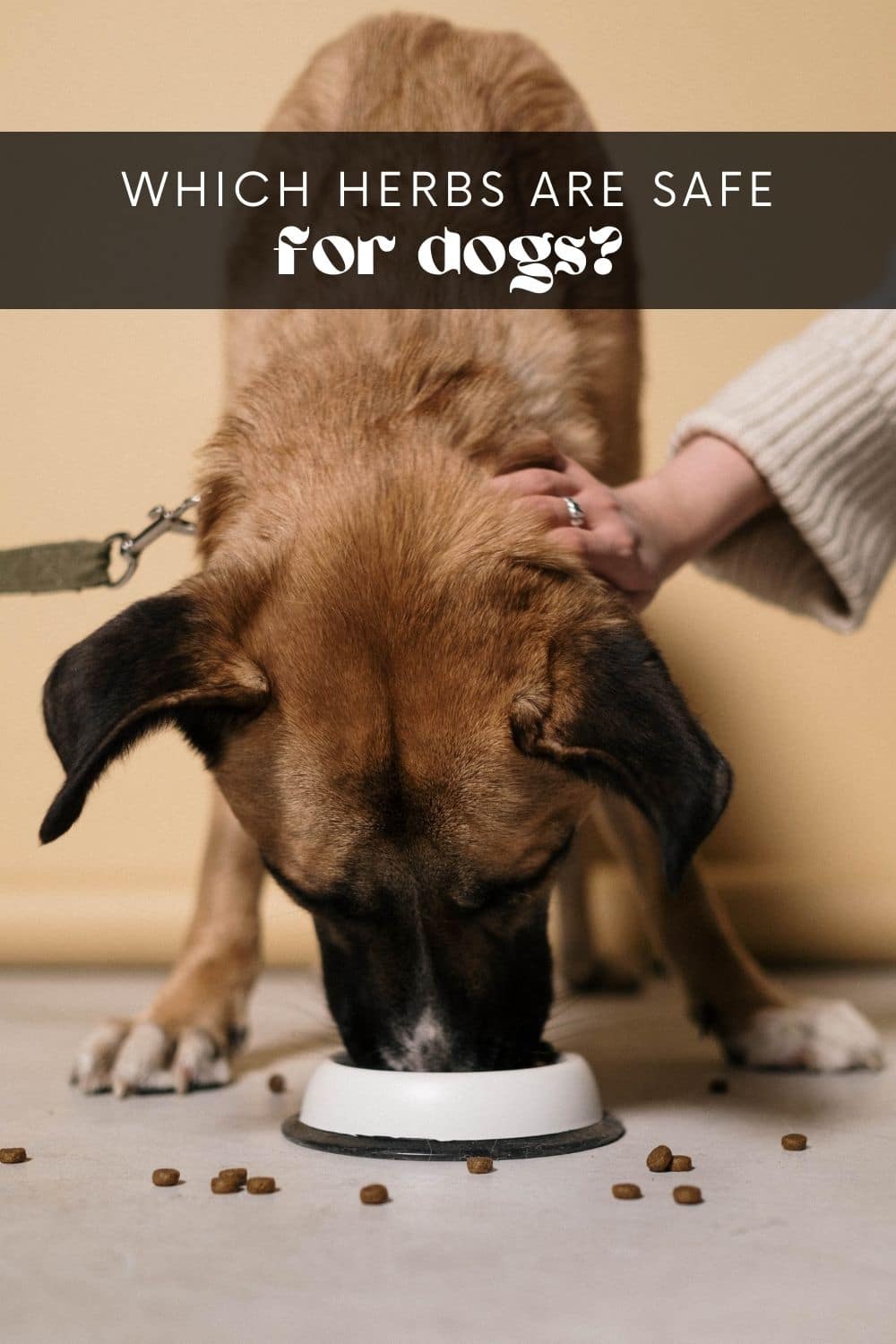
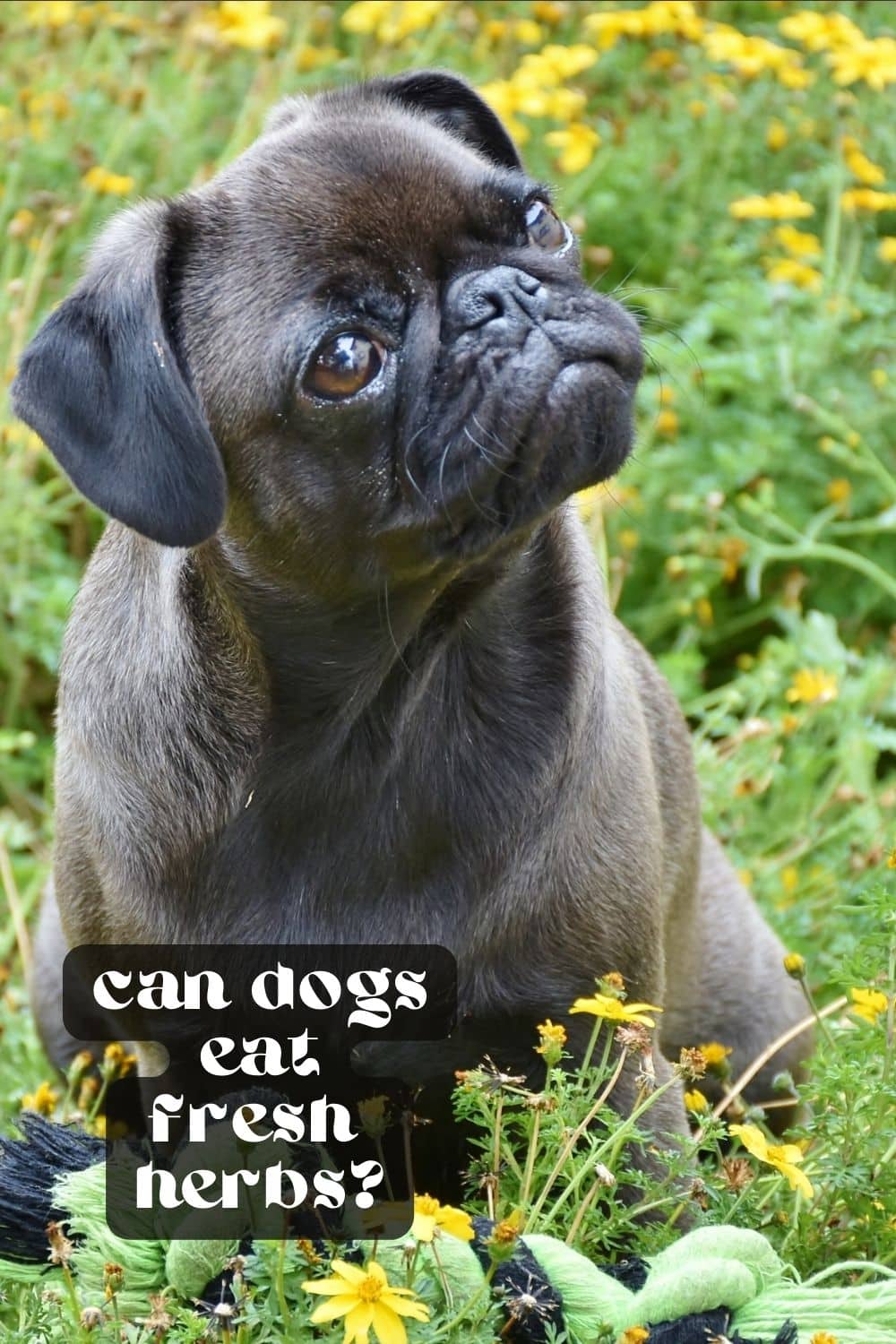
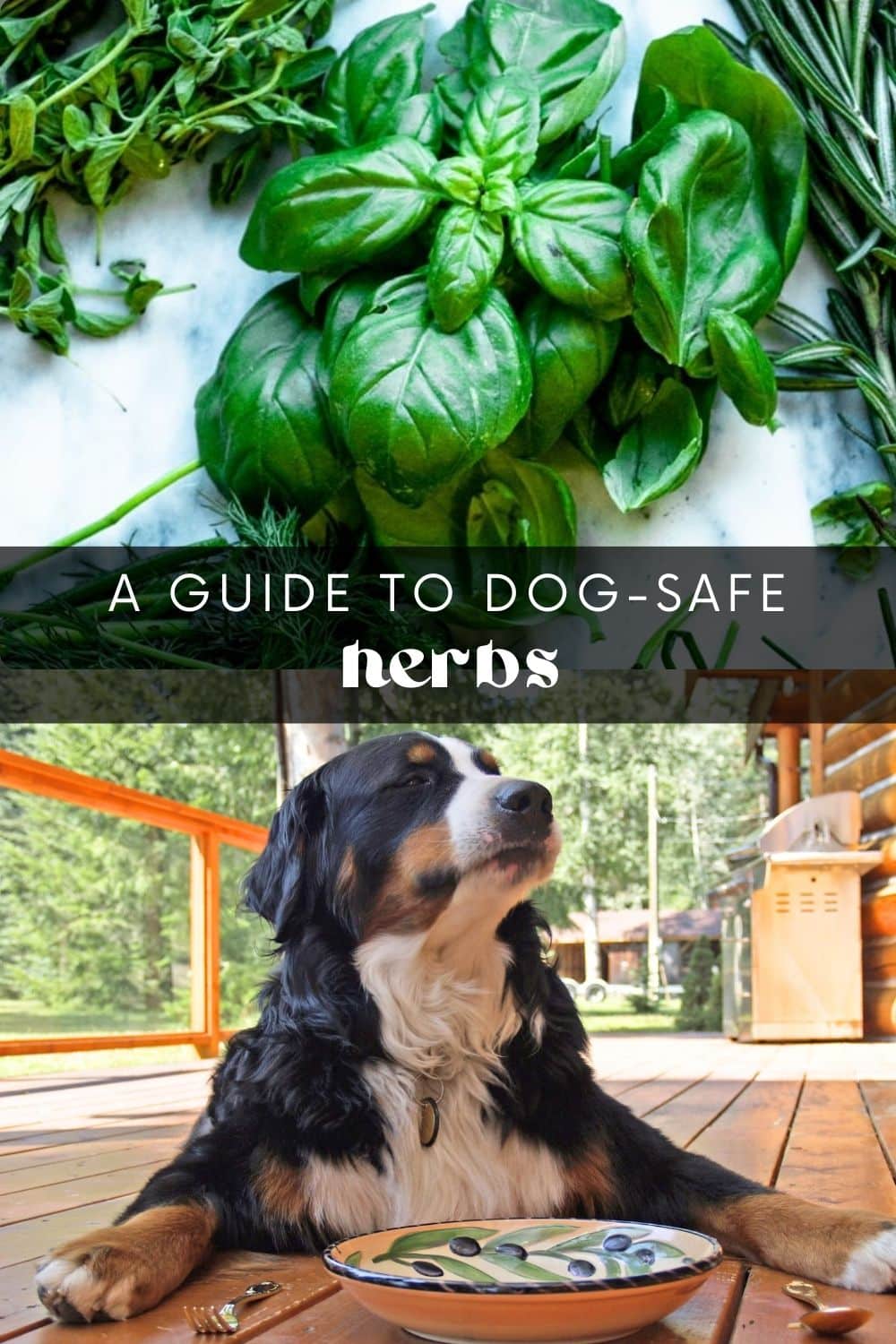
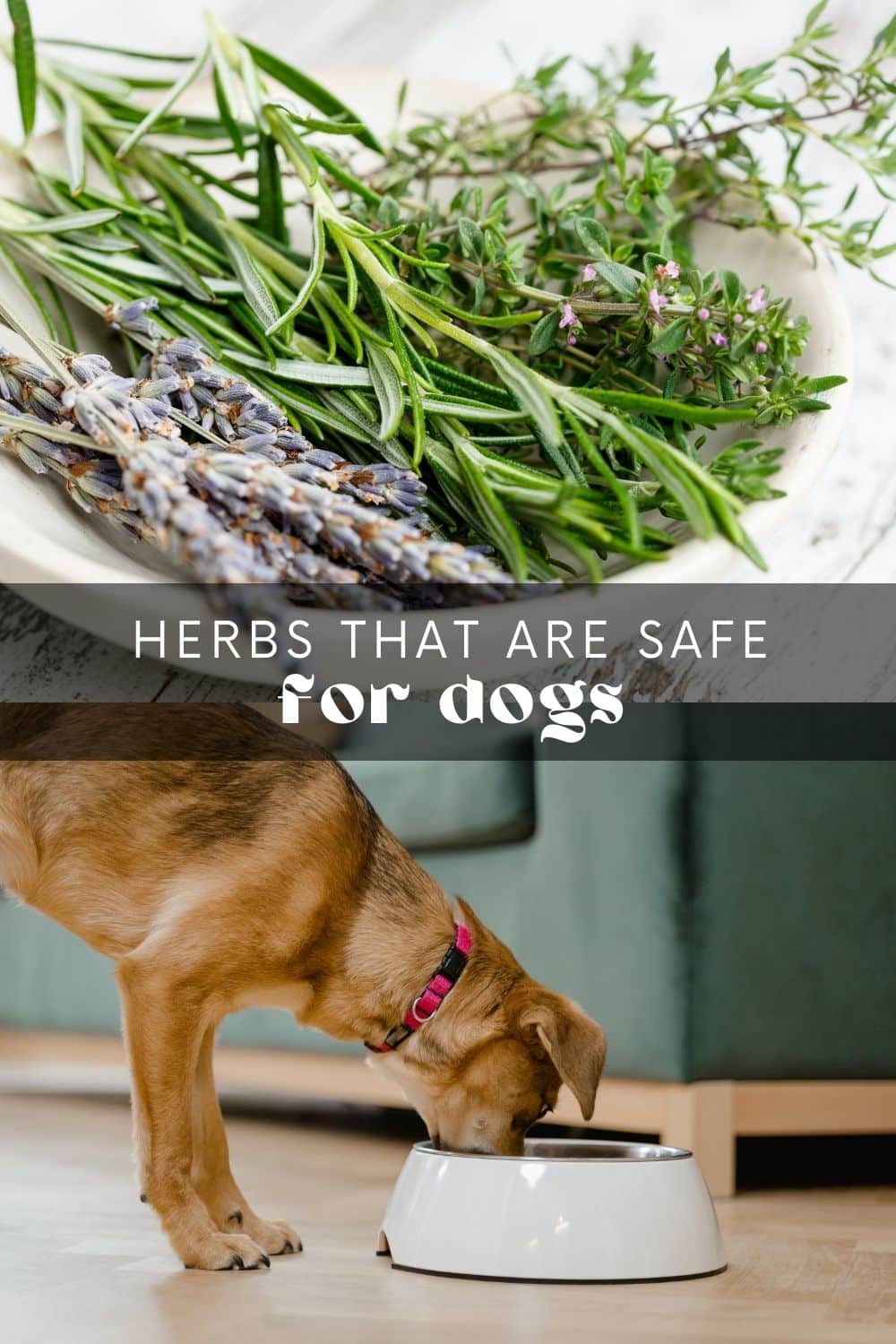
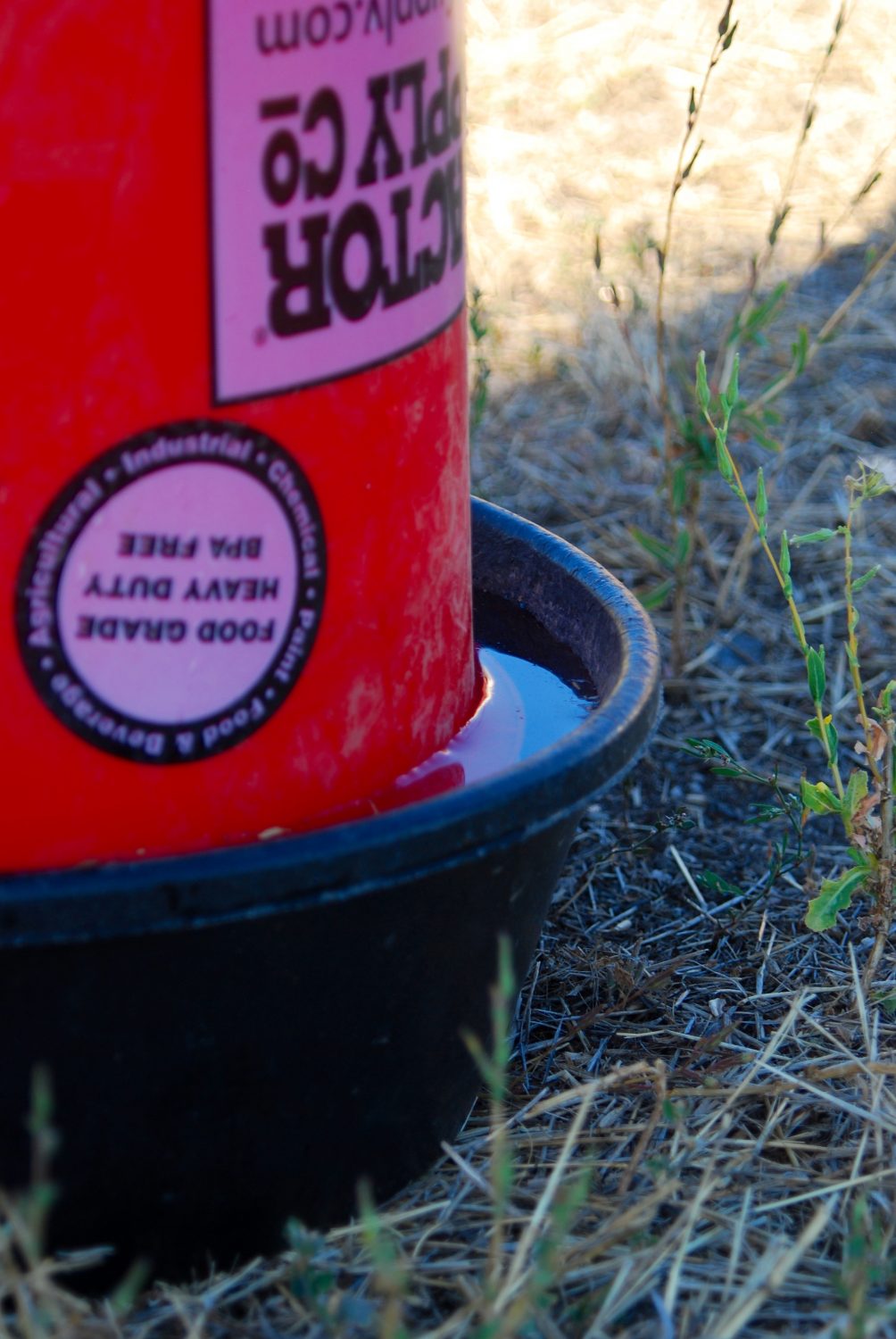




[…] Added to dog food – cilantro is a safe herb for dogs! […]